Talking TV: As NewsNation Expands To 24/5, Its Help Wanted Sign Is Still Out
Shrugging off its early critics and challenged ratings, upstart network NewsNation recently upped its weekday programming to 24 hours a day and unveiled two state-of-the-art new studios in its New York facility. It’s a signal that parent company Nexstar is still bullish on the network as it finds its footing against far more deeply entrenched cable competitors.
In this Talking TV conversation, Cherie Grzech, NewsNation’s VP of news and managing editor, walks through what the recent expansions mean and how the network is managing an increasingly more complex array of collaborating entities including The Hill, also owned by Nexstar.
Grzech shares the value The Hill has brought to NewsNation, how she communicates with Nexstar’s local stations to feed the content pipeline and why she thinks its primetime lineup, while drifting into some familiar cable territory with the addition of Chris Cuomo, remains true to the network’s value proposition of down-the-middle reporting.
Episode transcript below, edited for clarity.
Michael Depp: NewsNation had a big month in April. Veteran anchor Elizabeth Vargas joined the network with a new show on the third. The Hill, a show tapping parent company Nexstar’s widely read political site, debuted on the 24th, as did an expansion to 24 hours of news each weekday. The network also unveiled two new studios at its WPIX headquarters in New York’s Daily News building, from which its evening block of programing now originates.
I’m Michael Depp, editor of TVNewsCheck, and this is Talking TV. Today, I’m with Cherie Grzech, VP of news and managing editor at NewsNation, to talk about all of this expansion and what it means for the network and its future. We’ll be right back with that conversation.
Welcome, Cherie Grzech, to Talking TV.
Cherie Grzech: Thank you so much for having me. I greatly appreciate it.
Well, thanks for being here. How important was it to get to 24 hours of weekday news for the brand?
I think it was tremendously important. I mean, obviously when a breaking news story happens, the American public wants to go to someplace they can trust and some place they can get the news immediately. And so, when we weren’t able to provide that during the middle of the day, that was a dimension and a milestone we really wanted to hit so that any time anyone wants news during the week, they can find it on NewsNation. And that’s really just been a great and exciting week for us because of that 24/5 move.
Now, how are you feeding these additional hours with content? Did you hire up more reporters and producers or is much of it coming out of the Nexstar stations?
It’s always been a combination of those things. But as far as staffing, we’re hiring every day. It’s kind of an exciting moment for us because as others are kind of condensing their staff, we’re building every day, we’re adding to our staff every day. We still need to hire more people, but presently we’re using the Nexstar entities.
We have 199 local stations. So, when breaking news happens, we’re able to be on the ground within minutes in most places across this country. And in addition, we have our own NewsNation reporter teams that we’re using throughout the hour. It’s kind of a combination, but we call it one Nexstar, as one entity of all of our properties.
And as you know, we have The Hill property as well, so in D.C., we also can rely on those folks for information. We can use them on our air. And in addition, Nexstar also has a bureau here in D.C., where I am today, obviously. We have offices in Chicago and New York and other places as well. But I’m here in D.C. and we use those reporters that are up on the Hill and working with regional congressmen and senators throughout.
I did read about the hire up for NewsNation in one of the trades. I’m wondering, can you say how many reporters you brought on and how many reporters and producers you’re still looking for?
Well, I don’t know all the specifics because they’re changing rapidly. But presently we have about 17 NewsNation-exclusive reporters that are on our staff. We are hiring about 100 jobs overall that are still open presently throughout all of our shows and our newsgathering operation. So, we’re continuously looking for new people.
And one of the really exciting things I think about NewsNation is that we have people from every network represented here. We have people from every local station and various areas represented. So, we have an abundance of folks that have come here to make this place the excellent place we want it to be. And that’s been a real fun part of learning from all of the different places and different experience levels that people bring to the network daily.
As the managing editor, how does NewsNation work collaboratively with the Nexstar local stations? How do you logistically manage that orchestration?
Well, obviously, communication and organization are always important to every company. I think the really exciting thing for us is we have what’s called a datebook and we can look at every local station across this country and see what they’re covering for the day. We’re actually able to then pull that video or elements from those stations as well.
In addition, we bring in live feeds from any breaking news story, and we can reach out to the news directors and ask if we they can provide us with the reporter that is on location to do a live shot at the time that we’re on the air. In addition, we talk monthly and weekly about political events we’re going to be covering in the future, big events like the Indy 500 coming up. All of those things are orchestrated as looking at how do we best use all the resources of Nexstar and how do we also have our own resources to help Nexstar with national coverage, Because that’s what we are, the national entity Nexstar.
So, it is it is a lot of communication back and forth, but we have a lot of systems that allow us to look right into them and figure out what they’re doing without even making a phone call. Many networks obviously depend on services like the AP, which we also have, and Reuters and other entities, but we also have this big entity of Nexstar stations that is like a one-stop shopping for us in finding out and knowing what elements and what stories they’re covering.
How regularly are you talking with those news directors? I mean, that’s a lot of news directors with so many stations across the country. Is that daily? Weekly? Is it a normalized kind of process or is it just ad hoc?
Our assignment desk based in Chicago is talking with the news directors and with the stations, I would say daily and sometimes hourly, depending on what is happening across the country. We also have, as I said, like as far as my level, I’m on a call with them monthly to talk about what we’re planning and what we’re doing.
But if we have a big event or we have a big breaking news story that breaks out collaboration is instant. And so, we always check in with them first because as everyone knows, every story in a lot of ways starts at the community level, at the local level of America. And so, we want to know what their thought process is, how they’re covering it, how they would explain it, maybe who the key players are that we might be able to tap into and they might have a relationship with. It really depends on the day in the story. Sometimes I would say we’re talking to news directors all the time and other times just based off the news.
Do you look at this whole enterprise as building a nationwide network? How are you branding this and fronting this to viewers? If it’s a local Nexstar station reporter and they’re self-identifying on the air to the user, do they say NewsNation? How do they think of themselves with regards to being in a network or not?
What they’re doing is important to the station and the community they drive to every day when they’re on our network. Obviously, it’s a NewsNation platform. And we’re presenting from the news station that is in these various communities across the country. But again, you know, one of the great entities that I thought when I came here that differentiates us from any other network is that ability to have folks in the community on the ground knowing what is going on and being able to put that in perspective for the American public from where they are.
Many times, you know, network news gets a bad rap for parachuting into an event or something that we’re covering. But in this case, we are actually relying on the folks who know that community and deal with the circumstances there, day in and day out. And I think that brings a different level to our national coverage. I think folks are concerned about what’s going on in other communities across this country. Maybe they can learn from it. Maybe it’s something they’re facing, and they see a solution that someone else has come up with. So, I think that’s the kind of relationship and the ability of NewsNation that really no other network has.
Tell me about these two new studios in the WPIX building. I understand that they’re quite state of the art and I’m sure your EVP of station operations, Blake Russell, could wax lyrically about and they’ve been speced out. I’ve heard a little bit about the LED displays, etc. but for the sort of top level, how would you describe the facilities?
Well, they’re amazing. I mean, all of our studios have been built out. What you’re seeing behind me is our D.C. studio, where we are now broadcasting The Hill broadcast here daily. So, when we built all of our studios, one of the great things we have in our favor is we’re starting now, right? We’re building them now and we can utilize the technology that exists presently.
The studios in New York are absolutely exceptional. I was up there a couple of weeks ago, and to see the video wall that is in Elizabeth Vargas Reports’ studio, which Cuomo will be in soon, that is just an amazing entity because you’re able to show so many different visual elements at the same time, [whether] graphics to have someone understand the story better or a live shot to take you to the scene.
The numbers, I mean, I think we have over 300 LEDs across the New York studio, and then our control room, if not the biggest, is one of the biggest control rooms in the country in any network setting. It really allows our personnel to see all of the various feeds that are coming in, not only from NewsNation, as we talked about, but from Nexstar, from other entities, so that we can be monitoring what’s happening across the country and bring it to the viewer as quickly as possible in the control room.
And what’s the extent that they are now and are going to be used?
Presently, we have two studios in New York where we broadcast both Elizabeth Vargas Reports and Dan Abrams Live is there as well as Cuomo and Banfield. So, we are going to be utilizing those studios in different dimensions. But obviously, the studio downstairs, we recently did a program where Elizabeth Vargas and Dan Abrams and Cuomo were all together.
And when we do those type of operations, that’s going to be utilized in our downstairs studio, which has all those LED walls and really captures what we’re able to do at NewsNation, along with the news ticker that is at the top of the screen as well. t’s exciting. And everything here is about adapting and moving and growing and building. We want to be able to do that, obviously, in places that give us a bright and just an exciting atmosphere.
The Hill, which we’ve mentioned earlier, is a new show on the network, and it also has a standalone FAST channel on streaming. What has that brand brought to NewsNation that it didn’t have before?
It’s brought an exceptional amount of personnel that are looking at issues across the board up on Capitol Hill. There’s two components to what we do on television, obviously, and that is what video elements we can bring from all of our stations, but it’s also the information, right, the distribution of information. And so, we’re working on building systems with The Hill where we can really get that information from The Hill minute by minute of what is happening up on Capitol Hill.
Yesterday, we had the vote on the debt ceiling. And through that bit of information, we had Bob Dusek right on our set, on our panel, talking with us as that vote was going down, not only were Blake Burman and others on the set from NewsNation receiving that information, Bob Cusack was also receiving the information from his personnel on The Hill that was able to get that out to the American public very quickly.
It really is about being there and knowing the players and knowing the intricate detail of what is happening in Washington. And obviously Washington could be very wonky, right? It can be in the weeds, it can be swampy. But we really want to break down each of these issues to what does it mean to each community. And the more information you have and the more representatives and senators you can get to, the better off that is.
So, The Hill really allows us to get that intricate detail of what every senator and representative is talking about and maybe strategizing about moving forward and whatever subject matter they’re handling at the time.
I asked you before about how you had transparency into what the Nexstar stations are doing so you can work with that. But what about The Hill? Do you have a similar kind of transparency with what’s in their pipeline? How do you know what to use?
We’re building a lot of these communications systems to allow us to distribute information from one organization to the other. But all of it comes through the pipeline of what is being put out there. We have alert systems. We have urgent systems, as I call them, that alert us to big entities that are happening. Also, we monitor daily The Hill website as well what they are putting at the top of their feeds.
But it really is a coordination challenge, and we believe that the biggest strength that we are going to have is by figuring out ways to use that information to move our product forward, and we have something that no one else has. And The Hill has such a great reputation in this town and D.C., and it is certainly something that people look to for that specific bit of information. So, at the NewsNation level, what we have to do is decide, you know, what part of that is really important to us at this time and what part is not important.
And they do have an excellent reputation. Is The Hill still operating as a sort of autonomous collaborator here, or does Nexstar, or does NewsNation, have more input into its content selection choices?
They’re their own entity, like a lot of these places are. But at the same point, we are in conversation daily. I speak with Joe Ruffalo, who runs The Hill now. As I just said, Bob Cusack was on our set. Our reporter teams are talking to each other daily about what they think and where they are. So, it really is a mechanism of making sure we’re all alert of what’s happening. The Hill is alert of what we’re going to, you know, specialize on that day where we have our reporters, what our assignments are, and then we look to them on the same entity. We’re all independent, but at the same point we all collaborate, and we all use all of our minds to make the best decisions.
I want to come back to content in just a second, but before that distribution. Are there any plans in the works for NewsNation to offer a streaming or a FAST channel that’s decoupled from a cable subscription?
You know, we’re working and looking at how we build all of our entities and all of our reach. I’m so caught up in what I’m doing on a daily basis, I’m not so sure exactly where we are on that facet of the business. But I will say that, you know, what our determination here is, is to offer the American public something they don’t have anywhere else.
We want to be the place that people come for unbiased, factual news that they can get. And that brand is what’s going to stand up on any Nexstar property we have. And so, as we build out that brand, we build out all of the entities of what that means and how we distribute it. And my focus is much more on what is that foundation, what is that platform? And then we can figure out how that information then goes out to all the various places that people now want to get their news from.
You’ve set me up very well for my next question. Back into content then. From 6:00 on now weeknights, you’ve got some very known well-known news host commodities who are shepherding your programing. We’ve had both Ashleigh Banfield and Dan Abrams on this podcast before, and now you’ve added Elizabeth Vargas and almost a year ago, Andrew Cuomo. There’s a bit of a case of one of these hosts is not like the other here with Cuomo, so I want to ask about that. He came over to NewsNation under a cloud. I mean, he was fired from CNN for ethical breaches in terms of his working relationship with his brother, former New York Governor Andrew Cuomo. Why did this not present a problem for your network?
Well, look, I think our network is built on differing opinions, differing points of view. I think that as an entity, we are here to get everyone’s opinion and allow people to debate. You see it on Cuomo on Wednesday night. He’s on with Bill O’Reilly talking back and forth about every issue. And I think that is what the American public is looking for. They’re looking for the great debate. They’re looking for that.
Every side of an issue should be presented in a fair and in a respectful way. And I think that most Americans, as we’ve seen, don’t necessarily say that they’re a Republican or a Democrat or they’re much more in that independent space. And I think that’s what we’re going for.
And I think that’s what we brought to NewsNation. Any television network would be very jealous of the lineup that we have on our air in the evening. I mean, from Leland Vitter to Chris Cuomo to Dan Abrams to Ashleigh Banfield, I mean, we are presenting something that no other network is able to do. And we’re also presenting it from all different points of view.
I’m glad you brought up O’Reilly and Cuomo show. I watched a number of clips from recent episodes, but this one in particular where Cuomo had Bill O’Reilly, who’s a host himself fired from Fox News, and their subject was the firing at Fox of another host, Tucker Carlson. I mean, given that the network’s value proposition of offering down-the-middle, depoliticized news in what’s otherwise in primetime, an echo chamber of ideological commentary on cable, I’m wondering what should I as a viewer, do with a conversation like that between two fired anchors talking about a third fired anchor? I mean, is this a sort of an anomaly? Because it seems like that’s swimming back to some very familiar primetime news shore there.
Well, I think people are, you know, as much as they are interested in the media landscape, they’re interested in what happens behind the scenes as you’re talking to me today about how we build a network, I think the opinion of what Bill O’Reilly thinks about what has happened at Fox News is of interest to the to the national news landscape, to the American public. And I think he gives his opinion as to what he thinks it is.
But as an entity, our job is to find the best people to talk about the subject matter that they know about, and Bill O’Reilly knows about Fox News. And so that’s the that’s the reasoning behind why you would have him talk about that subject matter. In what I would call a very chaotic cable landscape, we are providing something that that is stable, that is that is presenting all kinds of items to folks so that they can make their own decisions about what is happening in America.
And what I spend my time focused on is really the news, right? Is the news element of every story that we cover throughout the day and looking at where we’re going to go next to uncover or ask the tough questions for the American people. So that’s what I spend my focus and my time.
I guess I’m just wondering why not more of that in primetime, too? Why not go to more reporting? I mean, one of the advantages you have, as you’ve said before, is you have so many people on the ground fanned out across the country, you know, between your own reporters and the Nexstar reporters at stations everywhere and in a lot of markets where there may not be many other reporters. So, you know everyone was talking about Tucker Carlson on that particular night, so why not tack a little in a different direction and utilize some of that? I mean, talk about it, but maybe not stay on that for quite so long?
Well, we certainly, if you look at our primetime lineup for that evening, we talked about many, many subjects. That was just one of the many that we cornered in there in the evening programs. And I think that that’s the great benefit of our primetime lineup — it’s versatile and it does look at a lot of issues every night, I can tell you, because I’m in charge of the reporter teams. I mean, every night our reporter teams are on our primetime shows unlike any other network out there. We are utilizing our reporter teams on our primetime shows to talk about what the facts and what the information in the news is. And then those shows can do what they want after that. But that’s really what we’re here for, is to provide that factual background.
Just lastly on the content side, I want to ask you about panels as well. You have panels, you use them. These are in the day or more in the primetime hours?
Well, I mean, obviously, The Hill show is built on a panel of journalists in D.C. who cover Washington every day and have a lot to offer on their viewpoint. I think to the point of panels, I think panels are good because they provide different viewpoints, right? They provide a different way to look at the information you might be seeing in general. We use them when they’re effective and when they are making sure that they’re presenting many sides of the issue. In other places, we don’t need that. It’s a reporter who’s just giving us the content as a report. It depends on the issue. But I certainly think, you know, the strength of The Hill comes through the panel of so many folks that have firsthand knowledge of what’s happening in Washington, D.C.
So, Cherie, finally, I just want to ask you, you came to NewsNation from Fox News, where you were a VP of news. Given all that’s come out in the Dominion lawsuit and Tucker Carlson’s firing, does this track with any of your own personal work experiences there?
You know, I obviously made a decision two years ago to take this opportunity because I thought it was a great one for me and one that which brought me to Chicago, which is closer to my folks that live in Detroit. And at the same time, to use my experience, I obviously I know Fox, I worked there for many, many years, but I’m now focused on making this a bright place for people to come to for factual and unbiased news. And that’s what I’m dedicated to do. I really don’t know what’s going on there now, but I do know that there’s a lot of chaos within the actual landscape of cable news, and I think that NewsNation provides a stability and a foundation of pure news. And that’s what I’m here for.
Well, thank you, Cherie Grzech, for sharing these updates about NewsNation, the now 24-hour, five day a week cable news network. We look forward to seeing what’s next. And good luck to you with those new studios.
Thank you so much. I appreciate you having us.
Thanks to all of you for watching. You can catch past episodes of Talking TV on TV News.com and on our YouTube channel. See you next time.





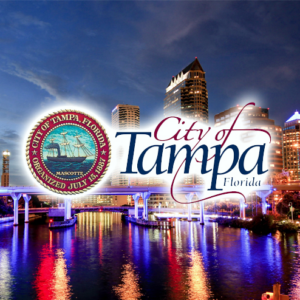

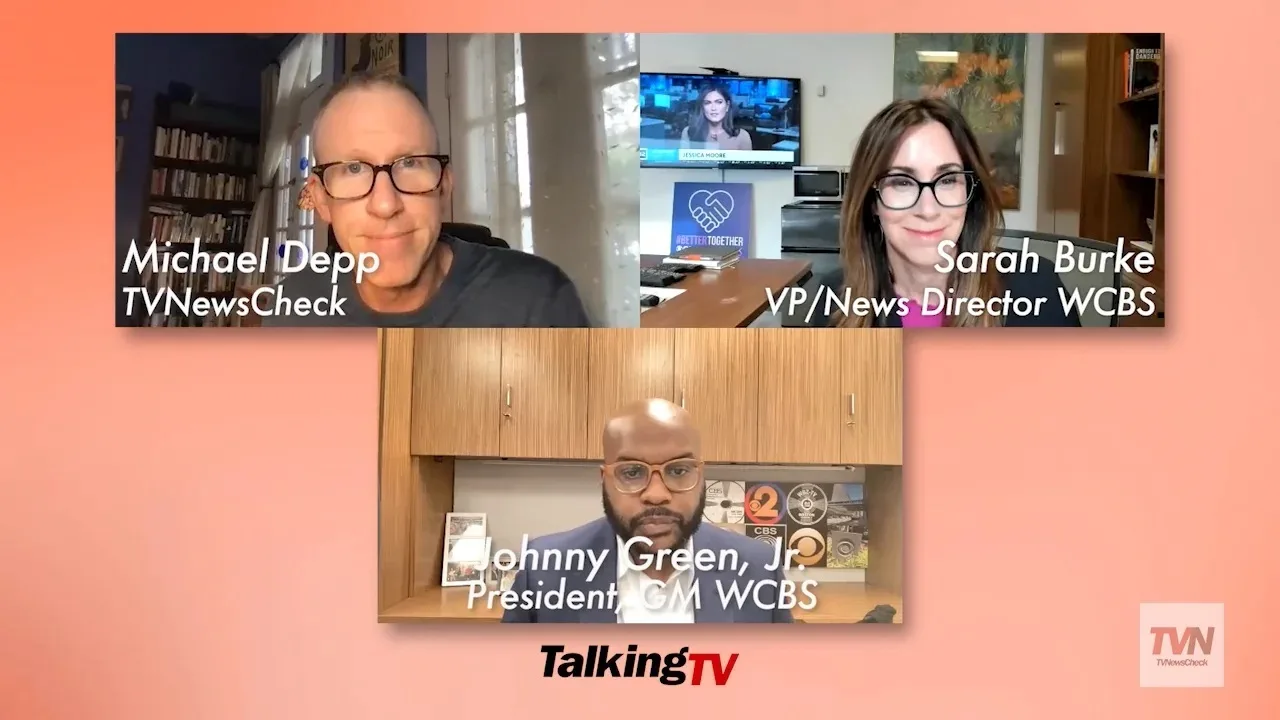
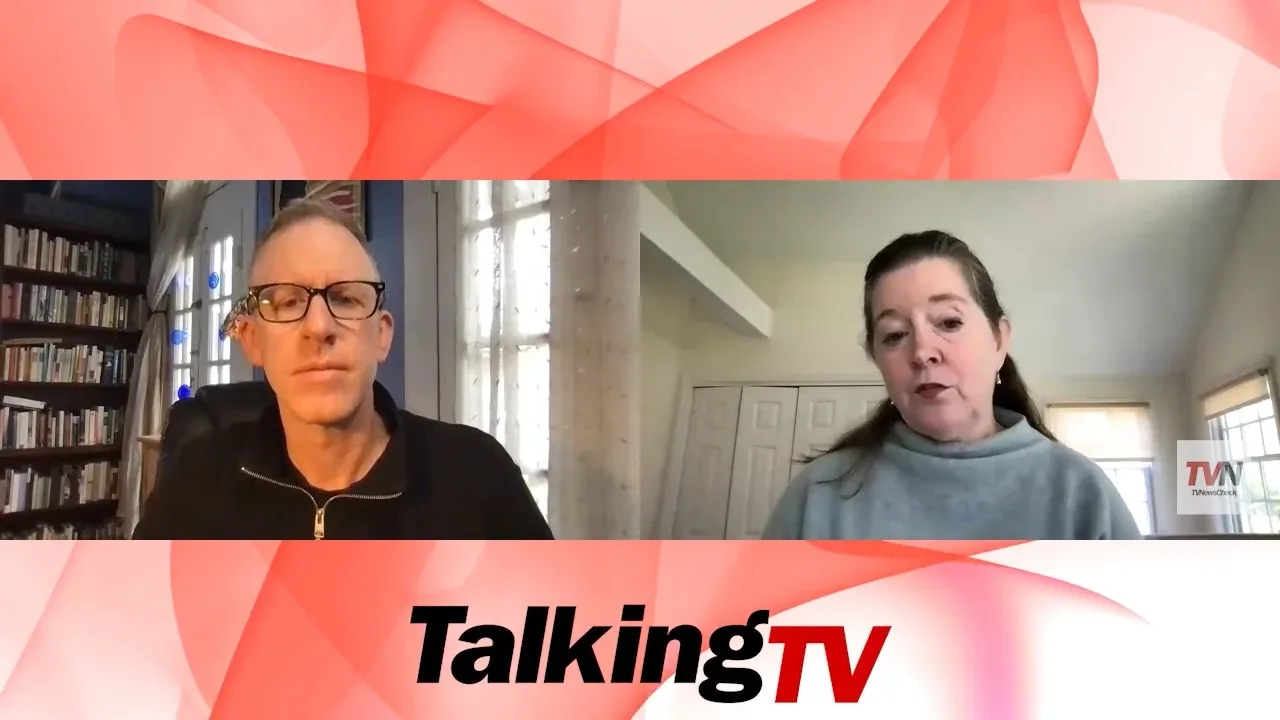

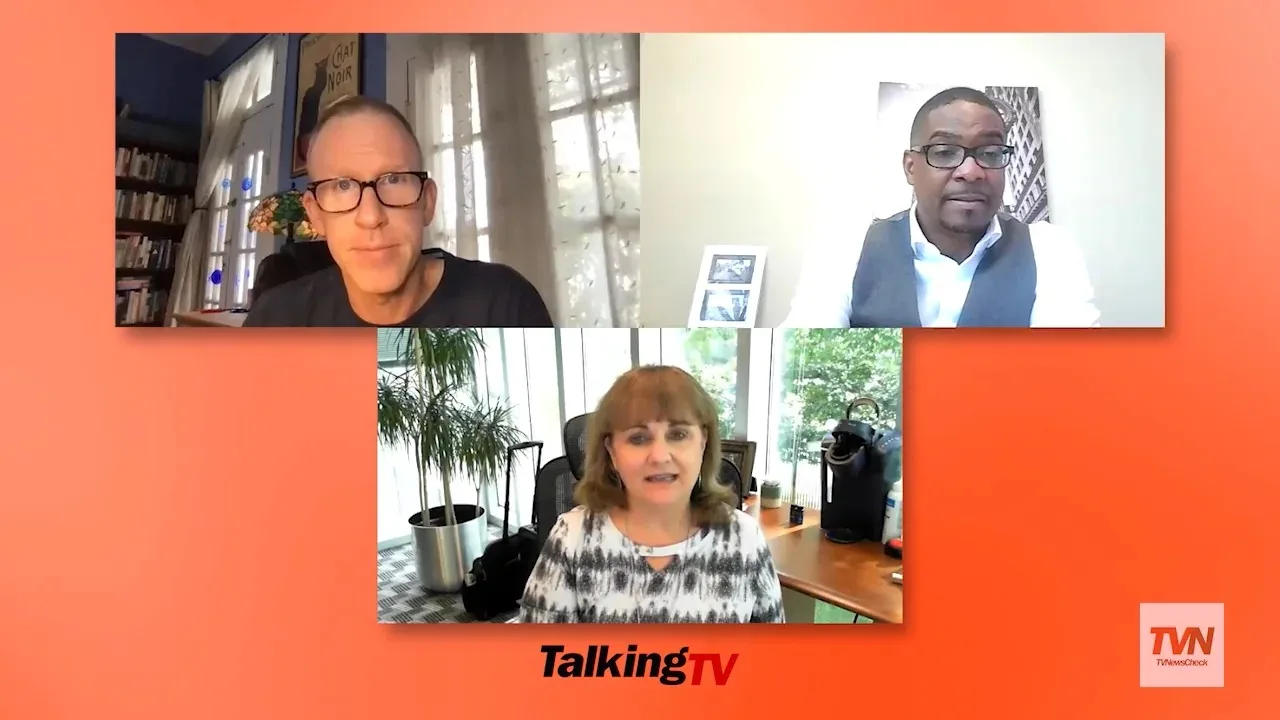
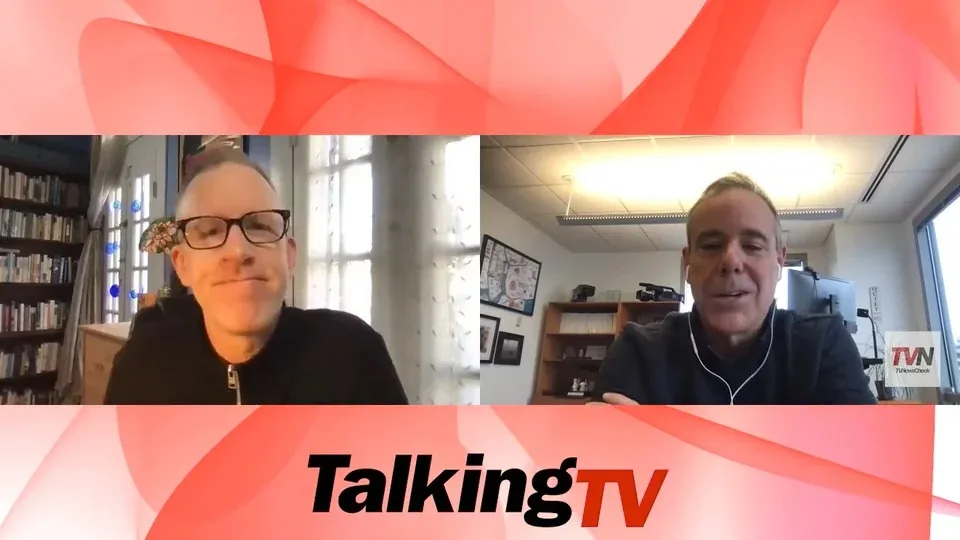

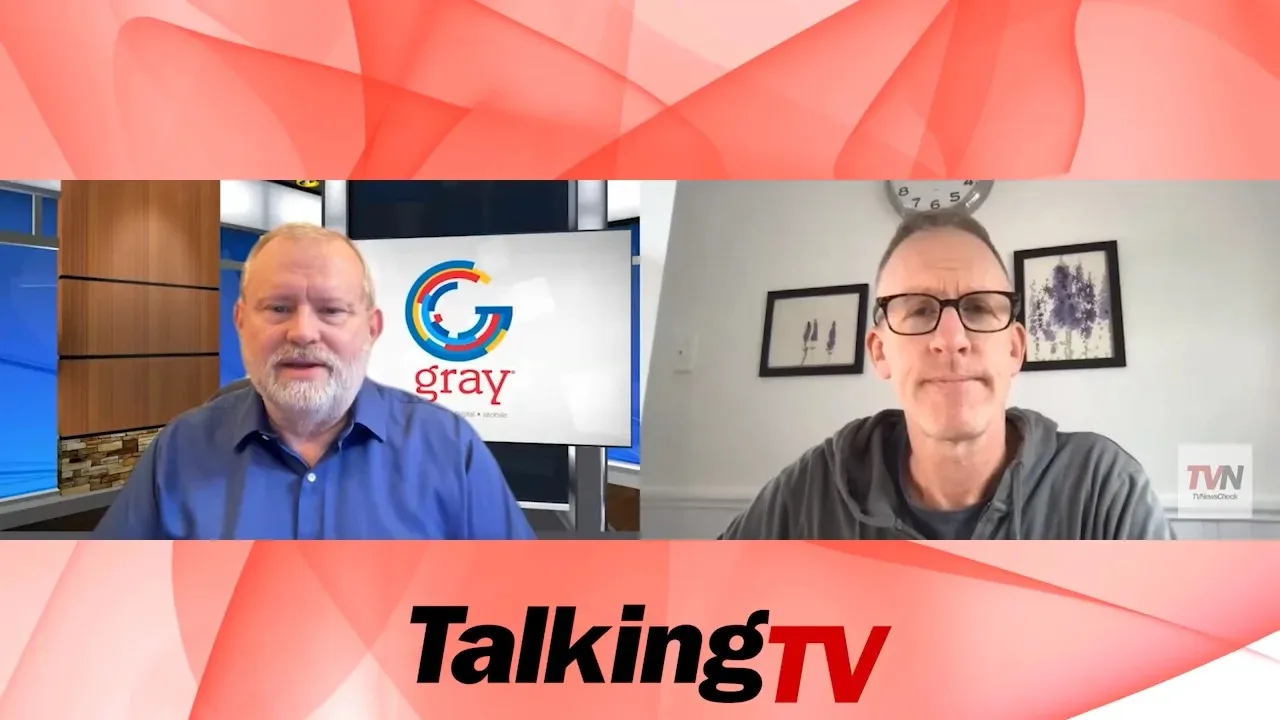
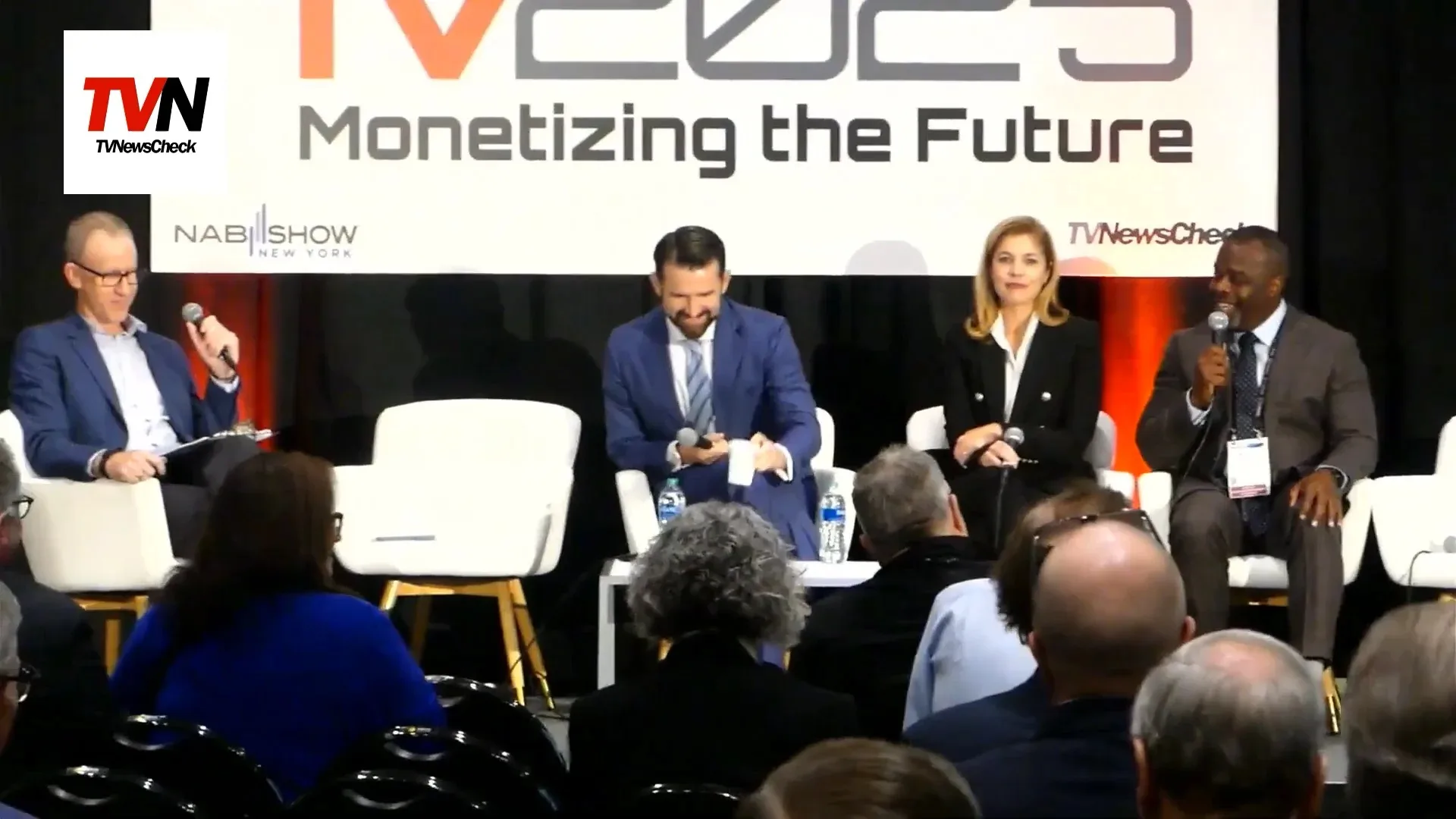
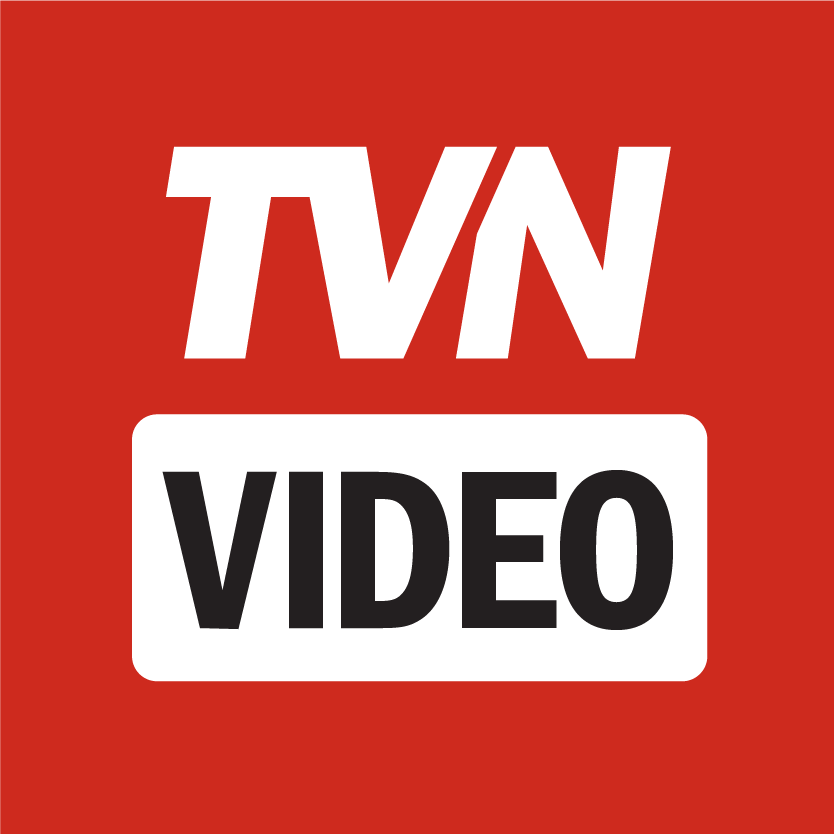




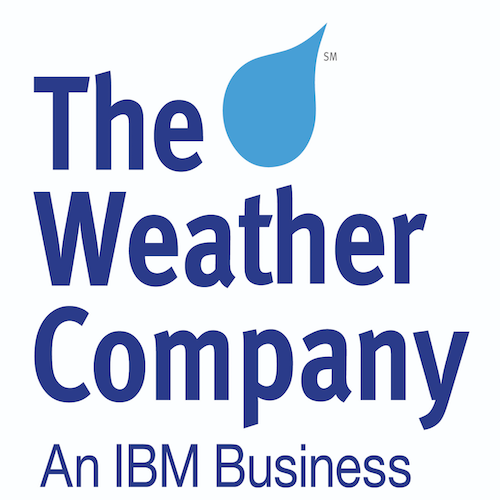

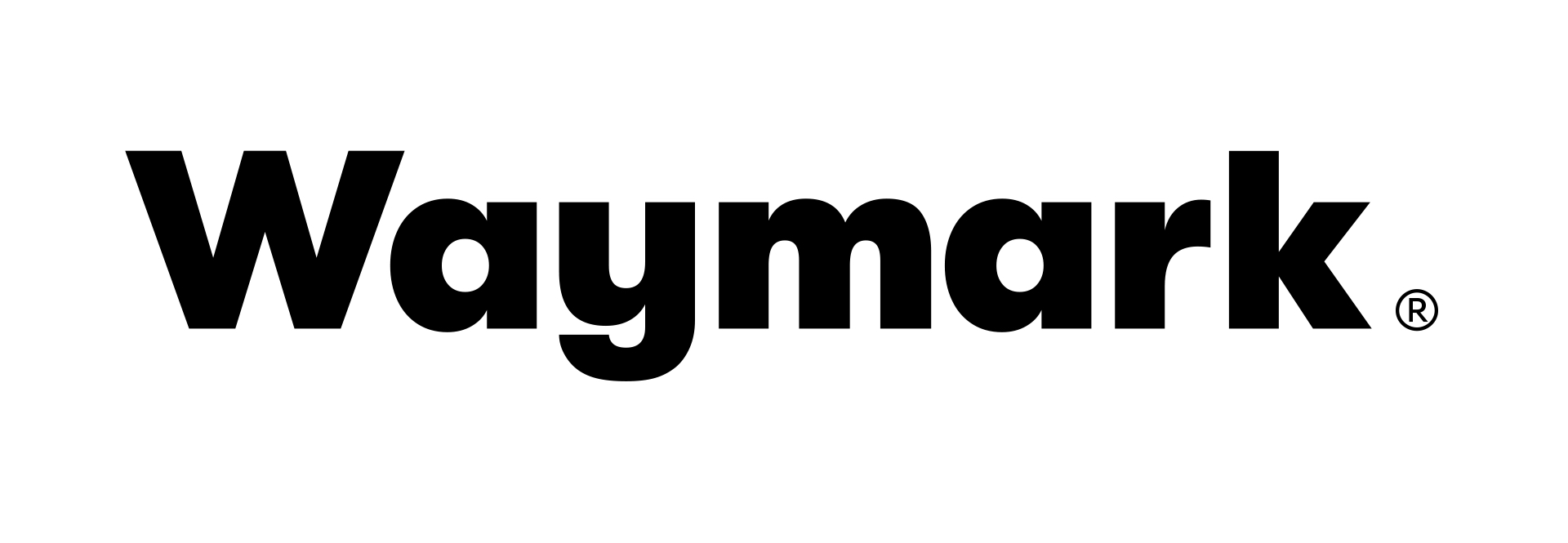




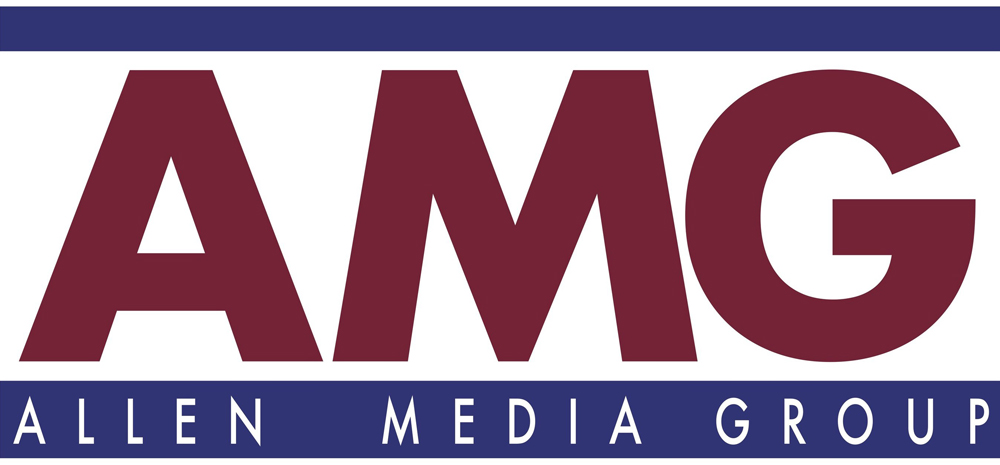



Comments (0)